第41章 THE CROSS AND THE CRESCENT(8)
But such schools of science, founded on such a ground as this, on the mere instinct of curiosity, had little chance of originality or vitality. All the great schools of the world, the elder Greek philosophy, the Alexandrian, the present Baconian school of physics, have had a deeper motive for their search, a far higher object which they hope to discover. But indeed, the Mussulmans did not so much wish to discover truth, as to cultivate their own intellects. For that purpose a sharp and subtle systematist, like Aristotle, was the very man whom they required; and from the destruction of Alexandria may date the rise of the Aristotelian philosophy. Translations of his works were made into Arabic, first, it is said, from Persian and Syriac translations; the former of which had been made during the sixth and seventh centuries, by the wreck of the Neoplatonist party, during their visit to the philosophic Chozroos. A century after, they filled Alexandria. After them Almansoor, Hairoun Alraschid, and their successors, who patronised the Nestorian Christians, obtained from them translations of the philosophic, medical, and astronomical Greek works;while the last of the Omniades, Abdalrahman, had introduced the same literary taste into Spain, where, in the thirteenth century, Averroes and Maimonides rivalled the fame of Avicenna, who had flourished at Bagdad a century before.
But, as I have said already, these Arabs seem to have invented nothing;they only commented. And yet not only commented; for they preserved for us those works of whose real value they were so little aware. Averroes, in quality of commentator on Aristotle, became his rival in the minds of the mediaeval schoolmen; Avicenna, in quality of commentator on Hippocrates and Galen, was for centuries the text-book of all European physicians; while Albatani and Aboul Wefa, as astronomers, commented on Ptolemy, not however without making a few important additions to his knowledge; for Aboul Wefa discovered a third inequality of the moon's motion, in addition to the two mentioned by Ptolemy, which he did, according to Professor Whewell, in a truly philosophic manner--an apparently solitary instance, and one which, in its own day, had no effect; for the fact was forgotten, and rediscovered centuries after by Tycho Brahe. To Albatani, however, we owe two really valuable heirlooms. The one is the use of the sine, or half-chord of the double arc, instead of the chord of the arc itself, which had been employed by the Greek astronomers; the other, of even more practical benefit, was the introduction of the present decimal arithmetic, instead of the troublesome sexagesimal arithmetic of the Greeks. These ten digits, however, seem, says Professor Whewell, by the confession of the Arabians themselves, to be of Indian origin, and thus form no exception to the sterility of the Arabian genius in scientific inventions. Nevertheless we are bound, in all fairness, to set against his condemnation of the Arabs Professor De Morgan's opinion of the Moslem, in his article on Euclid: "Some writers speak slightingly of this progress, the results of which they are too apt to compare with those of our own time. They ought rather to place the Saracens by the side of their own Gothic ancestors; and making some allowance for the more advantageous circumstances under which the first started, they should view the second systematically dispersing the remains of Greek civilisation, while the first were concentrating the geometry of Alexandria, the arithmetic and algebra of India, and the astronomy of both, to form a nucleus for the present state of science."To this article of Professor De Morgan's on Euclid, and to Professor Whewell's excellent "History of the Inductive Sciences," from which I, being neither Arabic scholar nor astronomer, have drawn most of my facts about physical science, I must refer those who wish to know more of the early rise of physics, and of their preservation by the Arabs, till a great and unexpected event brought them back again to the quarter of the globe where they had their birth, and where alone they could be regenerated into a new and practical life.
That great event was the Crusades. We have heard little of Alexandria lately. Its intellectual glory had departed westward and eastward, to Cordova and to Bagdad; its commercial greatness had left it for Cairo and Damietta. But Egypt was still the centre of communication between the two great stations of the Moslem power, and indeed, as Mr. Lane has shown in his most valuable translation of the "Arabian Nights,"possessed a peculiar life and character of its own.
It was the rash object of the Crusaders to extinguish that life.
Palestine was their first point of attack: but the later Crusaders seem to have found, like the rest of the world, that the destinies of Palestine could not be separated from those of Egypt; and to Damietta, accordingly, was directed that last disastrous attempt of St. Louis, which all may read so graphically described in the pages of Joinville.